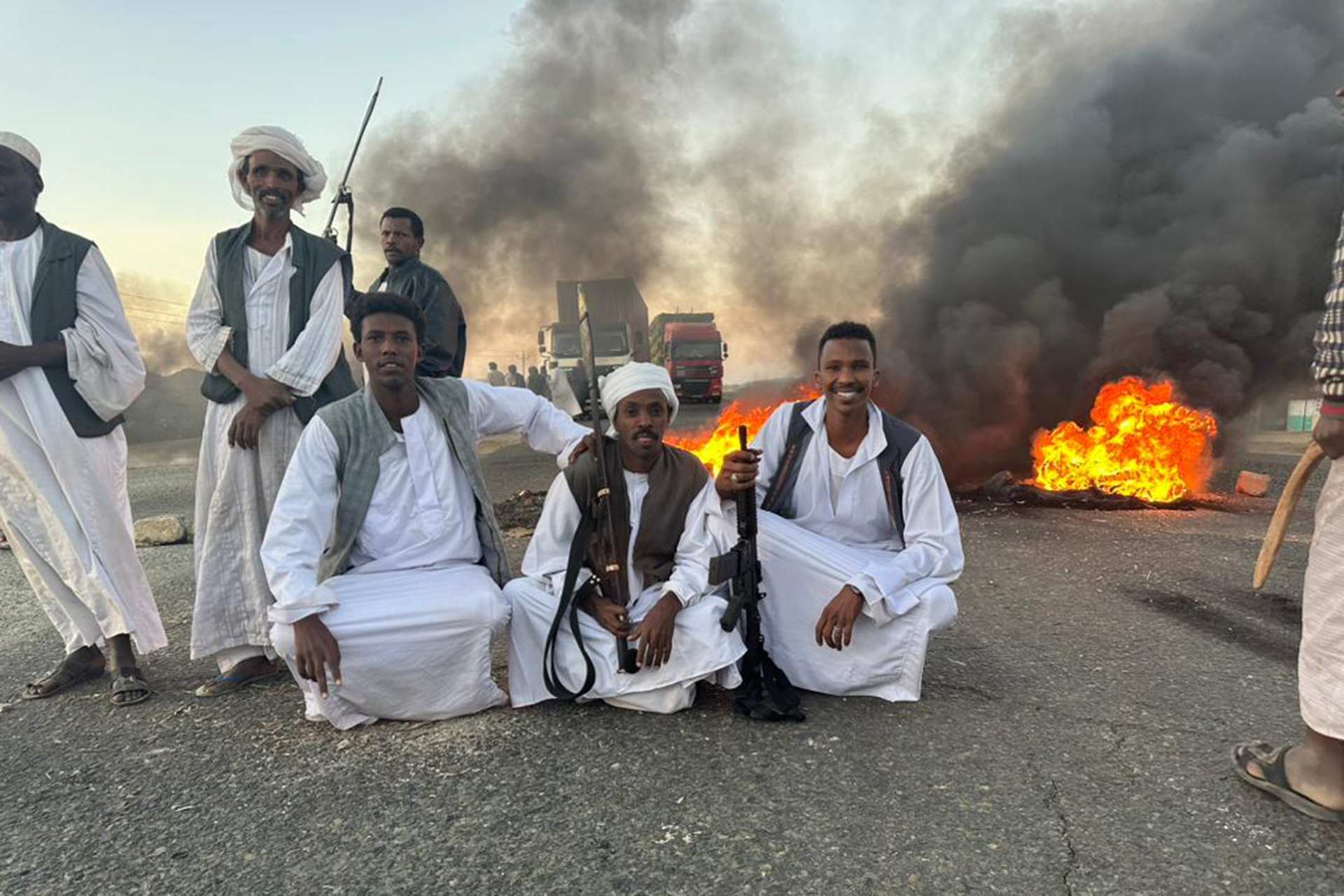Sudanese sources told Al Jazeera that the parties to the framework agreement agreed to set a period of 5 days to resolve outstanding issues and sign the final agreement on April <>, while hundreds of protesters blocked the national road linking the capital Khartoum and the cities of Port Sudan and Suakin on the eastern Red Sea shore, in protest against this agreement.
This came at the end of a meeting held by the parties at the presidential palace in Khartoum after the announcement of the postponement of the signing of the agreement, which was scheduled today, due to the lack of consensus of the parties to the framework agreement on some issues following a dispute regarding the integration of the Rapid Support Forces into the armed forces.
The RSF has affirmed its full commitment to having a single professional national army in the country, and to all that is contained in the framework political agreement.
Protest and road closures
Meanwhile, hundreds of protesters from the Sudanese Beja tribes on Saturday blocked the national road linking the capital Khartoum and Port Sudan and Suakin on the eastern Red Sea coast, in protest against the expected signing of the final agreement for the political process.
Hundreds of protesters blocked with stones and burning tires the national road linking Port Sudan and Suakin (Al-Jazeera)
The legal adviser to the Supreme Council for Beja Optics and Independent Columns in eastern Sudan, Ahmed Musa Omar, said that members of the Council closed the road linking the city of Port Sudan and the capital Khartoum at the Sinkat area, south of Port Sudan, stressing to Al Jazeera that the closure comes in rejection of the political agreement to arrange governance in the transitional period.
Eyewitnesses told Anadolu Agency that hundreds of protesters blocked with stones and burning tires the national road linking Port Sudan and Suakin.
The Supreme Council of Beja Optics and Independent Columns had earlier announced the decision to close the road between Khartoum and Port Sudan for one day as the country's main ports are located on the Red Sea, while other political and civil groups in eastern Sudan rejected the move.
The protesters reject the eastern path included in the peace agreement signed on the third of October 2020 in the capital of South Sudan, Juba, where the Beja tribes complain about the marginalization of the eastern regions, and demand the cancellation of the eastern path, and the establishment of a national conference on eastern Sudanese issues, resulting in the approval of development projects for them.
For its part, the native administration in Khartoum state announced that it decided to close the state completely next Wednesday in rejection of the political agreement.
On March 19, Youssef announced that the final agreement between the Sudanese parties would be signed in early April, while the formation of the new government would begin on March 11.
The ongoing political process aims to resolve a crisis that has dragged on since 25 October 2021, when army chief Abdel Fattah al-Burhan imposed exceptional measures, including the dissolution of the Sovereignty Council and the transitional ministers and the declaration of a state of emergency.
Prior to Burhan's exceptional measures, Sudan began on August 21, 2019, a transitional phase that was scheduled to end with elections in early 2024, during which power would be shared by the army, civilian forces and armed movements that signed the Juba Peace Agreement with the government in 2020.

